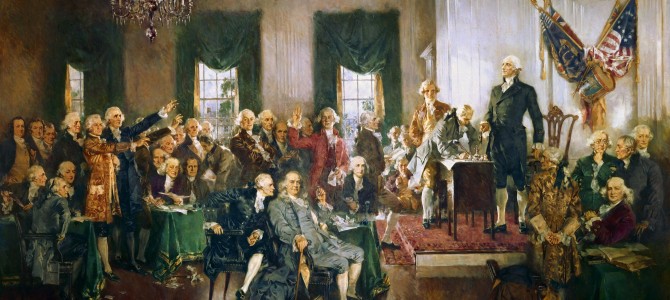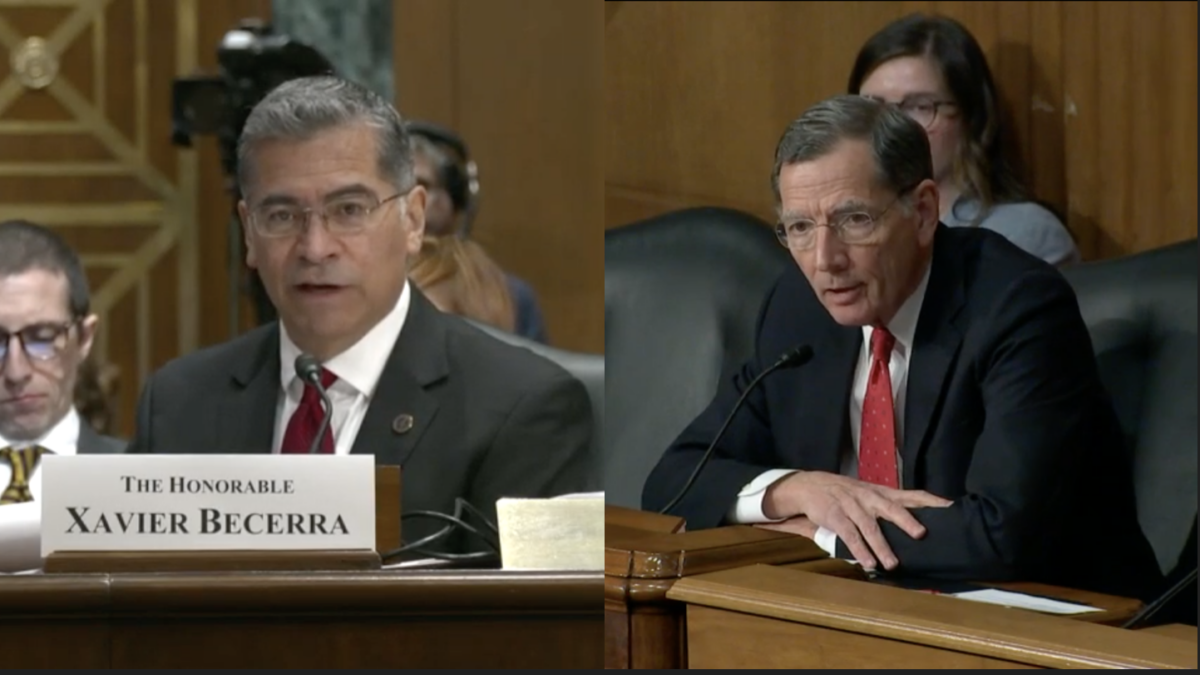
It is easy for many of us to think that pluralism is a new thing, that there is some uniform and static American culture only recently being encroached and threaded through by outside cultures. I fall to that temptation sometimes, despite having come here as an immigrant myself some 35 years ago. Yet, throughout our history, “pluralism was the native condition of American society. It was not, as in Europe and in England, the result of a disruption or decay of a previously existent religious unity,” as John Courtney Murray wrote in “We Hold These Truths.”
There have always been American immigrants, and there have always been very public conversations in America about immigration. There has also always been a commonality to the immigrant mind, because immigration does not happen by accident. Something has to motivate someone to make those choices: what to take and what to leave of one’s life, when to leave, and where to go. In our country, we only see those immigrants who have the spirit to make those decisions, and those who have arrived at similar conclusions. There is variety, of course, and as many stories as there are immigrants, but I would argue there is some element I will call “the immigrant mind.”
If we as a nation believe ourselves to be defined by our founding principles, we should ask: how does the immigrant mind engage with these principles, with American pluralistic society, with American government structure and function, and Western classical political philosophy and society? How and what does the immigrant mind think about current cultural issues like religious liberty, abortion, feminism, and the effects of the sexual revolution? How and what does the immigrant mind think about economic liberty and education?
What The Founders Said about Immigrants
What type of immigrant mind did our Founding Fathers anticipate would fit the American Proposition?
Echoing George Washington, Thomas West believes the idea of equality as expressed in the Declaration of Independence defines an American, immigrant or not. In “Vindicating the Founders,” he clearly exposits the Founding Fathers’ position on immigration: Washington, Hamilton, Madison, Jefferson, Franklin, et al., give us a view generous in its conception of citizenship yet cautious of the character of would-be citizens. Many Founders voiced concerns over the character and mindset of immigrants: that is, they recognized, and were concerned with, the phenomenon of the immigrant mind.
Because the Founders understood that the purpose of government is to secure the people’s inherent natural rights, the immigrant must be one who can accept that vision and make it his own, even propagate it. Hence certain mindsets were eschewed while others were desired.
Thus Washington encouraged persons to come to America who were “friends to the rights of mankind” and “sober, industrious, and virtuous members of society,” but he was concerned about immigrants settling in densely in one place. He wrote this to John Adams:
the policy or advantage of [immigration] taking place in a body (I mean the settling of them in a body) may be much questioned: for, by so doing, they retain the language, habits, and principles (good or bad) which they bring with them. Whereas by an intermixture with our people, they, or their descendants, get assimilated to our customs, measures, and laws: in a word, soon become one people. (Emphasis added.)
Thomas Jefferson’s analysis is less optimistic:
Yet, from [absolute monarchies] we are to expect the greater number of emigrants. They will bring with them the principles of the governments they leave, imbibed in their early youth; or, if able to throw them off, it will be in exchange for unbounded licentiousness, passing, as is usual, from one extreme to another. It would be a miracle were they to stop precisely at the point of temperate liberty. These principles, with their language, they will transmit to their children. In proportion to their numbers, they will share with us the legislation. They will infuse into it their spirit, warp and bias its direction, and render it a heterogeneous, incoherent, distracted mass.
Benjamin Franklin pithily summarizes: “Not being used to liberty, they know not how to make a modest use of it.” Reflecting on the founders’ predictions, West writes: “Jefferson feared that people accustomed to despotism will lack the vigilant spirit of self-assertion to resist the natural tendency of government toward oppression, while those whom despots have forbidden to control their own lives will be licentious when given free rein, lacking the self-control to live in ‘temperate liberty.’” This is similar to the ideas I put forth in an earlier article, and which I am certain to visit again.
Hamilton points out the difficulty:
The safety of a republic depends essentially on the energy of a common national sentiment; on a uniformity of principles and habits… foreigners will generally be apt to bring with them attachments to the persons they have left behind; to the country of their nativity, and to its particular customs and manners. They will also entertain opinions on government congenial with those under which they have lived; or if they should be led hither from a preference to ours, how extremely unlikely is it that they will bring with them that temperate love of liberty, so essential to real republicanism?
In the recommendation to admit indiscriminately foreign emigrants of every description to the privileges of American citizens, on their first entrance into our country, there is an attempt to break down every pale which has been erected for the preservation of a national spirit and a national character; and to let in the most powerful means of perverting and corrupting both the one and the other. (Emphasis added.)
Hamilton is describing the loss of national identity and its vital role in national security. Few would argue with the notion that modern America is full of immigrants who, if not being actively encouraged to import their culture and all its attachments, at the very least are not being incorporated into a single national identity. This is in no small part because America is struggling with its national self-identity, and the two trends combined result in an unstable situation.
Other ideas about this crisis exist, but I have a two-pronged approach I’ve been thinking about, as a way to “limit the warfare,” and “enlarge the dialogue,” as Murray puts it in “We Hold These Truths.” I suggest one approach for the natural-born American, another for the immigrant.
Natural-Born Americans
Natural-born Americans think they know what immigrants want and how they think because they grew up hearing American experience stories in school. But do they? Do we? Do we know that the new generation of immigrants (legal or illegal) comes with many different presuppositions than the immigrants of yesteryear?
Do we know whether many in the newer generation of immigrants come with a desire to assimilate into their new country, or to take advantage of the education and economic opportunity America offers while nurturing insular immigrant communities turned in on themselves? Do we know to what extent the immigrant’s religion dictates how he interacts with American thought and life? Do we know whether most immigrants (legal or illegal) come from a socialist society, and to what extent they “bring it with them” or “throw it off” into “unbounded licentiousness”? Do we know whether many immigrant communities within one or two generations lose some of their children to the drug epidemic, and the degenerative effects of the sexual revolution? Really, do we have any idea how much the immigrant mind affects civics and public policy in America?
The answer to many of the above questions is “no,” especially for the ordinary natural-born American. If our elites and talking heads have any insights, they’re not sharing their wisdom with the average Joe, mostly parroting statistics that will serve their party in the next election cycle.
Natural-born Americans need to learn many things about the immigrant mind: One, how an immigrant sees his self-identity and how he relates to the national identity. This should help build consensus on who we are as a nation. Two, how and what does an immigrant think about the American Proposition, the role of government, free enterprise, and politics? This should remind natural-born Americans of the heritage bequeathed to them by the Founding Fathers, and drive them to re-embrace it with vigor.
Three, how and what an immigrant thinks about marriage and family and their trajectory in our society; how do they think about the loss of community—the village—vital for a flourishing family culture? This can help bring natural-born Americans to a deeper understanding of marriage and family, and a desire to turn the tide of our cultural unravelling in this area.
Four, how and what does an immigrant think about freedom of religion? This should invigorate the natural-born American to do all possible to fight for freedom of religion in this country. Five, how and what does an immigrant think about feminism? This should encourage natural-born Americans to come to a deeper and healthier understanding of men and women.
The Immigrant Mind
At the same time, the immigrant himself has much to learn. He must come to grips with his immigrant identity, have some self-awareness. He is not of this land; there is a true sense in which he is other, and he must embrace it. Via immigration he has been welcomed, embraced, adopted, brought under the protection and care of a new motherland. For this, the immigrant, in word and in deed, must show gratitude and loyalty. He must come to a deeper understanding and appreciation of this country, its laws and its founding philosophy—that is part of his civil duty.
Becoming part of a new country, however, does not mean imbibing falsehoods and giving into depravity. Therefore, the immigrant must discern how to assimilate to American culture. He must be encouraged to stay family-focused and not fall into the individualism of the American culture. Not everything in American culture is good and to be embraced, neither by natural-born Americans nor by immigrants. He must not fall prey to the decadent, propagandized sexuality that surrounds us but instead come to a deeper understanding of men and women in order to strengthen family, community, and national bonds.
He must be able to distinguish true honor and respect for women from the demands of feminist thought leaders, and to resist distorted womanhood in its many instantiations. By learning to unite the best of his heritage with the best of his new culture, he equips his children to embrace their identity, not falling into a detached outsider mindset—nor succumbing to the counterfeit identities popular American culture tries to sell to them.
Only this two-fold simultaneous action on the part of natural-born Americans and immigrants can move us forward as a nation—if not reaching e pluribus unum, than at least becoming more civil. We have everything to lose if we do not attend to the immigrant mind. As I have struggled with my own identity as an immigrant, and as I have studied my immigrant community in the context of the American milieu, I found these words from Murray’s “We Hold These Truths” to be true and potent:
What is at stake is America’s understanding of itself. Self-Understanding is the necessary condition of a sense of self-identity and self-confidence, whether in the case of an individual or in the case of a people….The complete loss of one’s identity is, with all propriety of theological definition, hell. In diminished forms it is insanity. And it would not be well for the American giant to go lumbering about the world today, lost and mad.









